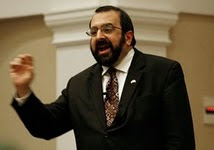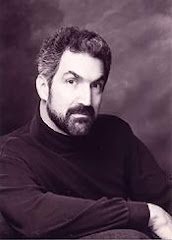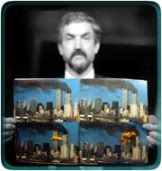 The case of Abdur Rahman, an Afghan citizen arrested and being tried for apostasy, raises some serious issues about the new Afghan government of former restauranteur Hamid Karzai and its commitment to overturning the strictures of the Taliban regime.
The case of Abdur Rahman, an Afghan citizen arrested and being tried for apostasy, raises some serious issues about the new Afghan government of former restauranteur Hamid Karzai and its commitment to overturning the strictures of the Taliban regime.
To understand Islam in Afghanistan, it is necessary to understand something of the competing strains of Islam operating there. Islam is perhaps the only unifying factor amongst Afghanistan’s many tribes who find themselves almost perpetually in some kind of violent conflict.
I am no expert on Islam in Afghanistan, but I have read quite a bit on the Deoband school of Northern India which continues to have a pervasive influence on Afghani understandings on religion, the state and the interpretation and application of sharia law.
This piece will be written in short bursts. The Abdur Rahman trial continues as we speak and the verdict is expected within a week. No doubt, there will be substantial international outcry. Much of this will be quite legitimate, though some will arise from sectarian monoculturalists who congregate around the Op-Ed pages of various newspapers with neo-Conservative and/or anti-Islam and/or fringe sectarian agendas.
I will endeavour to refer to materials easily available on the web. I welcome comment and feedback from people on this issue. I may also be writing and submitting on the issue to a number of mainstream newspapers in Australia and New Zealand. Much of the material on this blog will be used to generate some understanding on the many issues surrounding the Abdul Rahman case.
One of the most contentious issues in sharia law debates today relates to whether there exists a crime of pure apostasy. There is also a related debate on whether capital punishments should be applied in Muslim-majority states where an environment of corruption and sectarian hysteria often exist. These issues will be canvassed here.
But first it is important for us to gain some understanding of the peculiar political, cultural, theological and historical context within which this case finds itself unfolding.
The Deoband school
Under the Taliban, Afghanistan was ruled by a small group of religious elders and scholars trained in the traditional Deobandi madressa system in Pakistan. The training provided in these madressas is based on a narrow set of approaches to sharia law, many of which represent the most draconian and fringe interpretations producing the most oppressive results.
The Taliban were dominated by one tribal group. Their version of Islam excluded those regarded as heterodox – Shia Muslims or Muslims following any school other than the most unusual form of Deobandi theology. The Deoband school of Sunni Islam started in India. It represents a very classical strain of Islam, and was started by Sufi scholars from the Chishtiyya tradition of Islamic spirituality.
The Deoband school of Sunni Islam started in India. It represents a very classical strain of Islam, and was started by Sufi scholars from the Chishtiyya tradition of Islamic spirituality.
Deoband is the name of a town in Saharanpur in North-Western India. Deobandi scholars are those associated with the Deoband program of Sufi-based reform. The Deoband movement was a largely peaceful educational movement, its leaders tending to have little interest in political activity.
The Deoband movement first appeared in the late 19th century. Some excellent work on the Deoband school is available in the English language. Especially useful are works by Barbara Daly Metcalfe, who has translated an important Deobandi manual on Islamic law entitled “Bahisht-i-Zewar” (literally “Heavenly Ornaments”) and written specially for women.
Afghan Islam and the Madressas
The madressa system is known largely in the context of Islam in India and Pakistan. Travel writer and historian William Dalrymple has written a lengthy (if somewhat biased) expose on the madressas and their influence in the Indian sub-Continent.
(to be continued …)
© Irfan Yusuf 2006










